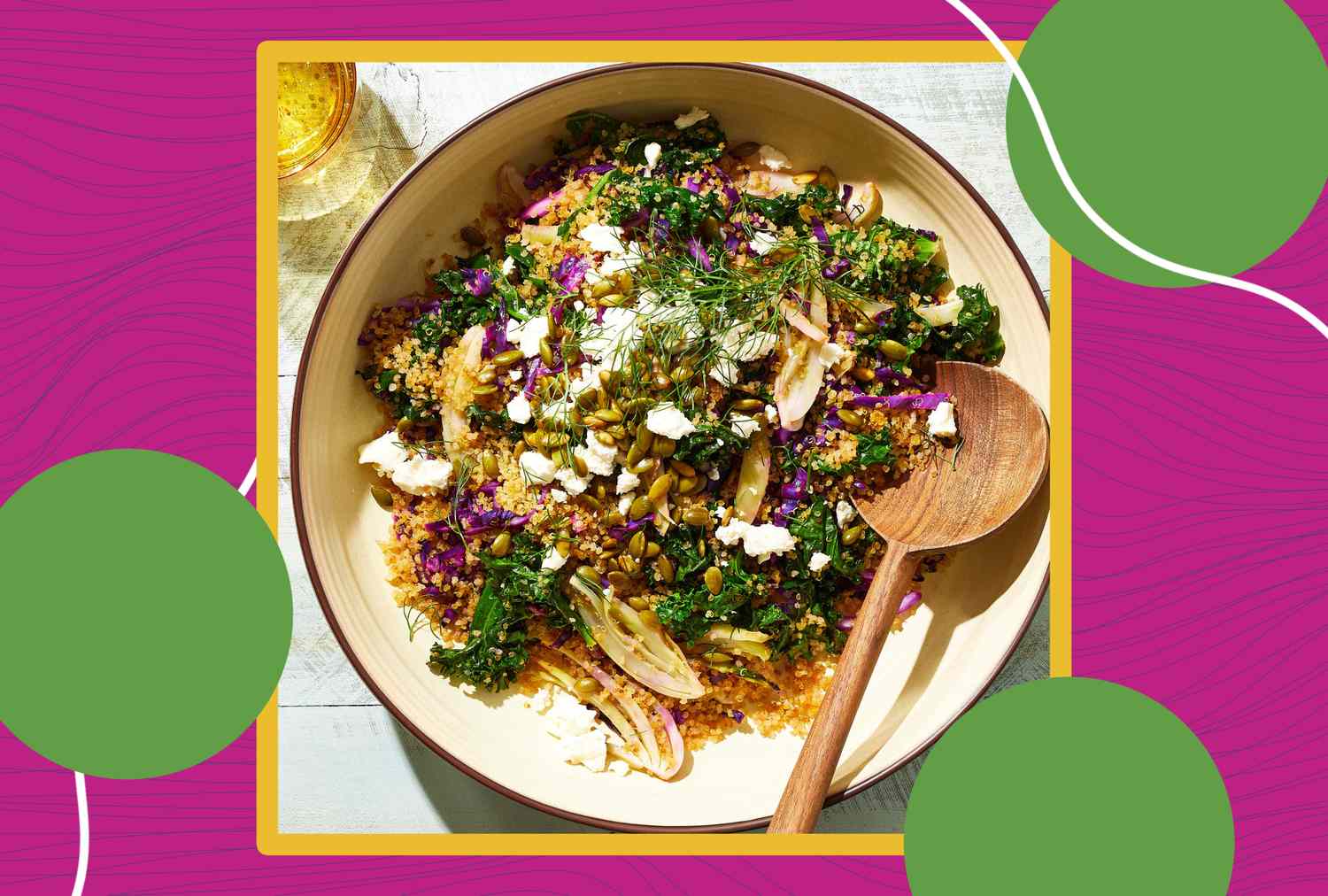Blog
7 Foods Women over 50 Should Eat Every Week

- Women over 50 experience changes in metabolism, bone density and muscle mass.
- These changes may mean prioritizing specific nutrients like calcium, omega-3s, protein and fiber.
- Dietitians share their top foods for women over 50 to ensure they’re meeting their nutritional needs.
Reaching a milestone age like 50 can come with a new set of priorities for the season ahead. For women, your 50s likely mark the tail end of your journey through menopause (women typically reach menopause by the age of 52).
This physical transition is accompanied by changes in metabolism, bone density and muscle mass, which means your nutrient needs shift in this new era of life as well. Your 50s become a prime time to start prioritizing key nutrients like calcium, omega-3s, protein and fiber (if you haven’t already!). Dietitians shared their top foods for women in their 50s to ensure you’re getting enough of these important nutrients in your diet each week.
1. Nuts
Now that you’ve celebrated 50 years around the sun, your brain health may be more top of mind. Luckily, supporting your brain health may be as simple as snacking on nuts regularly. “Studies have linked regular nut consumption to better memory and quicker mental processing in older adults. Plus, their combination of plant-based protein and fiber helps maintain steady energy and blood sugar levels—important for focus, mood and overall cognitive function,” says Molly Robinson, M.S., RD, LD.
She adds that nuts deliver key nutrients for brain health: “Walnuts provide omega-3 fatty acids that support healthy brain structure and nerve signaling.” Sprinkle walnuts on a salad like this Raspberry-Spinach Salad with Avocado & Walnuts or have them at breakfast in this Blueberry-Coconut-Walnut Baked Oatmeal.
2. Dairy
One staple that can help you meet many of your nutrient needs is dairy. For starters, it’s high in protein—just one glass of milk has 8 grams, while a cup of cottage cheese contains a whopping 24 grams, so it adds up quickly., “Protein plays a vital role in preventing muscle and bone density loss, which accelerates during menopause due to the decrease in estrogen levels,” says Lindsay Fencl, RD, CD. “By supporting muscle mass and promoting bone strength, protein helps counteract the natural decline in lean tissue and bone mineral density, which reduces the risk of osteoporosis and frailty with age.”
“Dairy products are not only rich in protein but also contain essential nutrients like vitamin D and calcium, both of which are critical for maintaining bone strength and density as you age,” adds Fencl. After menopause, a woman’s daily calcium needs increase from 1,000 milligrams to 1,200 milligrams, so eating dairy more often can help you bridge the gap. For even more benefits, choose fermented dairy products like yogurt and kefir, which contain probiotics. These helpful gut microbes play an active role in lowering inflammation and reducing the risk of heart disease, the leading cause of death in women. Try this Berry-Kefir Smoothie or Golden Milkshake for your dose of dairy.
3. Beans
Research suggests that your gut microbiome plays an integral role in how well you age. So take care of your gut and it will return the favor. One food that will show your gut some love is beans. Not only are they a versatile pantry staple, but they’re rich in fiber—a specific type of fiber called prebiotics. “Prebiotic foods have gut-friendly benefits, and I often recommend them to support a healthy gut through aging. They are a type of dietary fiber and act as a ‘primer’ for probiotics,” says Kinga Portik-Gumbs, RDN, LDN. That’s because prebiotics provide the necessary fuel for the beneficial bacteria in your gut to thrive. These Curried Butter Beans or this Cheesy Black Bean & Quinoa Skillet Casserole are easy bean-based dinner options.
4. Fatty Fish
“For women over 50, nutrition plays a vital role in protecting long-term brain health, especially as hormone changes can affect memory, mood and cognitive sharpness,” says Robinson. That’s why consuming the recommended two servings of fatty fish a week should be at the top of your list. “Fatty fish are packed with omega-3 fatty acids that help reduce inflammation in the body,” says Fencl—that includes inflammation in the brain. Research suggests that consuming adequate amounts of omega-3s can preserve brain function as you age. (That’s why omega-3s earned our top spot for the most important nutrient for brain health as you age.)
Omega-3s can also be helpful for those who are still transitioning through menopause. Per Fencl, omega-3s can alleviate menopausal symptoms (mood swings, sleep disturbances and hot flashes), improve overall health and support healthy body weight by increasing satiety and controlling cravings. Need some inspo for adding fatty fish to your meal plan? Try this Green Goddess Tuna Salad or these Ginger-Soy Salmon Bites.
5. Soy
Go meatless for dinner at least once a week and opt for soy foods in place of your usual protein. They’re not only a source of high-quality plant-based protein, but they also provide a host of other nutrients that are needed after turning 50. Soy contains a unique nutrient called phytoestrogens, which act like a weaker form of the hormone estrogen. These phytoestrogens may help manage symptoms of menopause, like hot flashes and night sweats. Research suggests that these helpful phytoestrogens may also protect bone strength after menopause
While tofu has a reputation for being bland, it doesn’t have to be! Try these Honey-Chipotle Tofu Bites or Tofu with Peanut-Ginger Sauce. Add extra fiber to a meal by swapping tofu for tempeh and give these Crispy Tempeh Steaks with Sun-Dried Tomato Cream Sauce a try.
6. Berries
“Berries are a powerful ally for brain health in women over 50,” says Robinson. “Berries are rich in antioxidants, which can help fight oxidative stress that contributes to age-related memory decline. Research shows that regular berry consumption—especially blueberries, strawberries and blackberries—may delay cognitive aging and decrease the risk of dementia.”
Berries aren’t just a great brain food either. The antioxidants in these tasty little fruits are also great for the heart—a focus after 50, since risk of heart disease increases. Research suggests that the antioxidants in blueberries could improve measures of cardiovascular health in postmenopausal women, particularly those with high blood pressure. Add berries to your breakfast with these Lemon-Blueberry Overnight Oats or our Berry-Green Tea Smoothie.
7. Quinoa
Women who are postmenopausal may have an increased risk of developing type 2 diabetes. The good news is that focusing on nutrient-dense foods that are rich in fiber, like quinoa, may help. In fact, research suggests this noteworthy grain may help regulate blood sugar in older adults. What’s the secret? While quinoa provides carbohydrates, it is also a source of blood-sugar balancing protein and fiber. A 1-cup serving of cooked quinoa provides 5 grams of fiber as well as 8 grams of protein. Quinoa is also rich in antioxidants, which will tackle inflammation, a factor that increases your risk of age-related chronic diseases like diabetes, heart disease and dementia. Looking for a new way to add quinoa to your diet? Try this Baked Kale Salad with Crispy Quinoa.
General Health Tips for Women over 50
- Don’t Miss Out on Protein: “Adequate protein intake helps regulate blood sugar by improving insulin sensitivity, which can be crucial in preventing insulin resistance and managing the risk of type 2 diabetes, conditions that are more common as hormone levels fluctuate,” says Fencl. Some studies suggest that aiming for 1 to 1.2 grams of protein daily per kilogram of body weight can help prevent muscle loss postmenopause.
- Add Strength Training to Your Workout Routine: Protein and strength training work synergistically to help preserve muscle mass during and after menopause. “Protein consumption needs to be paired with consistent strength training,” notes Fencl. “I recommend two to four days per week of heavy strength training that lasts between 30 to 45 minutes and focuses on four to eight reps per set.”
- Sleep: “Sleep is an underrated yet crucial necessity for women in their menopausal stage. A good night’s sleep acts like a phone charger; it recharges our energy and well-being. Some tips to achieve a better sleep are creating a nighttime routine (e.g., journaling, reading, taking a bath) or switching to cooling sleepwear or cooling bedding to reduce night sweats,” says Portik-Gumbs.
Our Expert Take
A nutrient-rich diet is important at any stage of life, but may be even more so for women in their 50s. During this decade, women face the pivotal transition through menopause to postmenopause. The significant hormone shift that accompanies menopause brings about new health concerns like maintaining bone density and supporting brain and heart health. Prioritizing a few essential nutrients like fiber, omega-3 fatty acids, calcium and protein can help you thrive while navigating this new life stage. Nutrition experts suggest that adding foods like fatty fish, beans, soy and nuts to your weekly diet will help you hit the mark on these much-needed nutrients.











